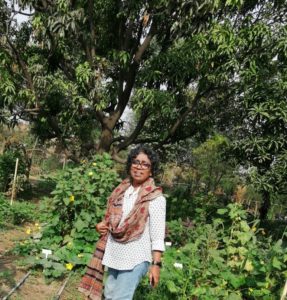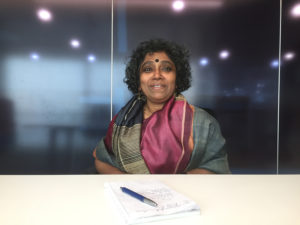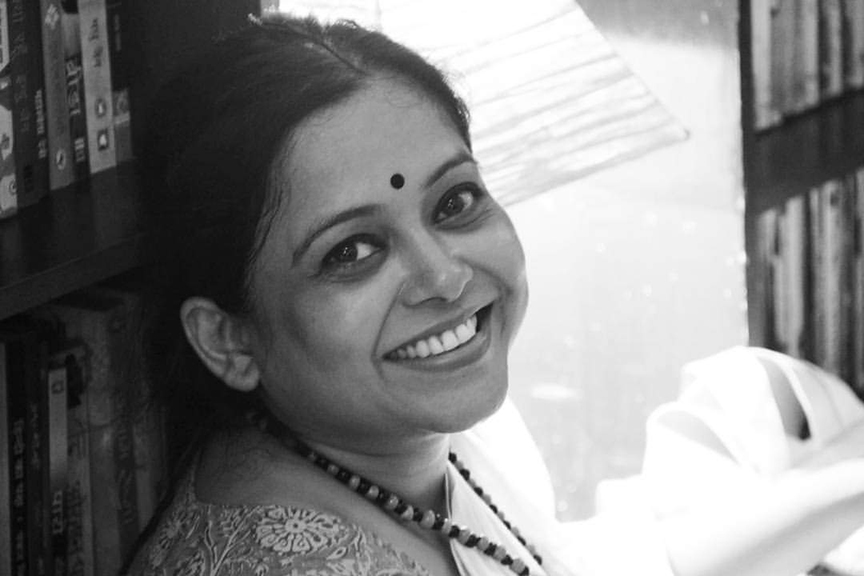Women who live alone by choice are challenged by weeks of lockdown. Some are using this time to catch with up themselves, while others contemplate on the larger question of companionship and compatibility
With the lockdown well into its fourth week, many are forced to deal with their own self in a focused way. We, humans, are social animals and this long phase of solitude may have psychological consequences, warn public health experts, a consequence of the pandemic that has not yet received its due attention.
To understand what it means to be alone in the time of Coronavirus when the whole social apparatus has collapsed, Patriot spoke to independent women who live me-myself-and-I as a matter of choice.
Manisha Pande, 40, is a blogger, writer and scribe. She lives alone in her 19th-floor apartment in Noida’s Sector 137, which has been sealed as active Coronavirus cases were reported here a couple of weeks ago. No one is allowed to enter or leave the premises of her housing society. Living alone is not new to her, solitude doesn’t bother her but solitude and isolation are two very different situations. Now that children have stopped playing in the open, people are not seen on the streets, shops are shut, it seems an ominous silence has engulfed her life. “It feels like I live in a ghost city,” she says. It’s not a good feeling.
Despite this, time flies, she does the cleaning and domestic chores in the absence of her maid. She has rekindled her interest in stitching and maintains a diary. She likes to spend time engaged with a story, either by way of reading a book or watching a movie. A day is well spent when she finds a good story to engage with.
She’s not one of those loner types who planned to lead a lonely life, but has reached a stage where she doesn’t crave, nor is desperate to find someone compatible; neither is she closed to the idea of a committed relationship.
The feeling of loneliness is not new to her, it’s a question of degree and there are times when she’s “very lonely”. But what is new is “the numbness I experience these days, which may last for hours,” and has happened to her many times during the lockdown. There are occasions when she is busy doing something, enters into an autopilot mode, where her mind is not in sync with the present, as if in a thoughtless state she’s staring at oblivion. She has penned many letters to people she’s close with, “What if I die alone?”
Kiran Bhushi, in her fifties, is a professor of Sociology at the Indira Gandhi Open University and has been living alone in her beautiful apartment at Khel Goan for many years. Her first reaction to living in a lockdown is, “It’s not very different!” There are parts of the year, she’s busy with her academic work and enters a state akin to hibernation, but she even in those times takes solace in the fact that the world around her is functioning as usual. That not being the case now, she misses interacting with her maid, mundane routine things she’d indulge in now have now ceased.
A wizard cook, she normally has many visitors. But all that has stopped, and there are phases when things become “very silent” and overwhelmingly lonely. The only consolation is that it’s just a phase, and time, in general, is passing very fast. She keeps busier these days than she did before the lockdown. A plantsman, she has a beautiful terrace garden. “My garden came to my rescue,” she says and explains that during the lockdown she seems to be having conversations with them. Plants, individually and collectively, engage with her, entertain her, keep her in good spirits.
These days she has been thinking of the larger question of companionship and compatibility with a fellow human being, which is not confined by the definition of a relationship or marriage. She is thinking of setting up a commune of like-minded people, with similar worldview and varied skill sets, a self-sufficient and self-sustaining way of environment-friendly existence. The commune will be made up of separate living units in close proximity. Members will have their private spaces and also a common space to co-inhabit. “I’m thinking about these things with greater clarity,” she explains as if raring to put her thoughts into action.

Rekha Natarajan, who till last year was the head of commissioning at Oxford University Press, has a very different take on the situation. She feels very “good about it” on a personal level but qualifies it by saying, “It’s very sad that the world had to come to this.” There’s “peace” as the impact of the outside world has been minimised. It’s not always pleasurable when the world “is moving at a different pace” than you.
This “peace”, to many, is “perilous silence”, but is not disconcerting to Rekha. Far from it, it’s a respite from looking at others, how they live, what they wear and ”wallow in self-pity.” She has a way with words.
Rekha lives in a flat in Sheikh Sarai, leads a minimalist life, aspires to become a farmer, loves cooking and feeding — runs a basic cloud kitchen — says, “I’m very content and happy in my personal space.” She has led a hectic life as a publisher for many years trying to meet deadlines and keeping up with a demanding corporate job. Now she reads for pleasure at leisure, not as a professional desideratum. Comfort is what she seeks in the way she dresses up and goes about doing things.
Staying alone during the pandemic could be liberating as well. Things that seem essential for a sane existence in everyday life, many people now realise, are fairly dispensable, like having a cup of coffee at a cafe. “Do I need coffee?” Rekha questions her old habits. The answer is obvious.






